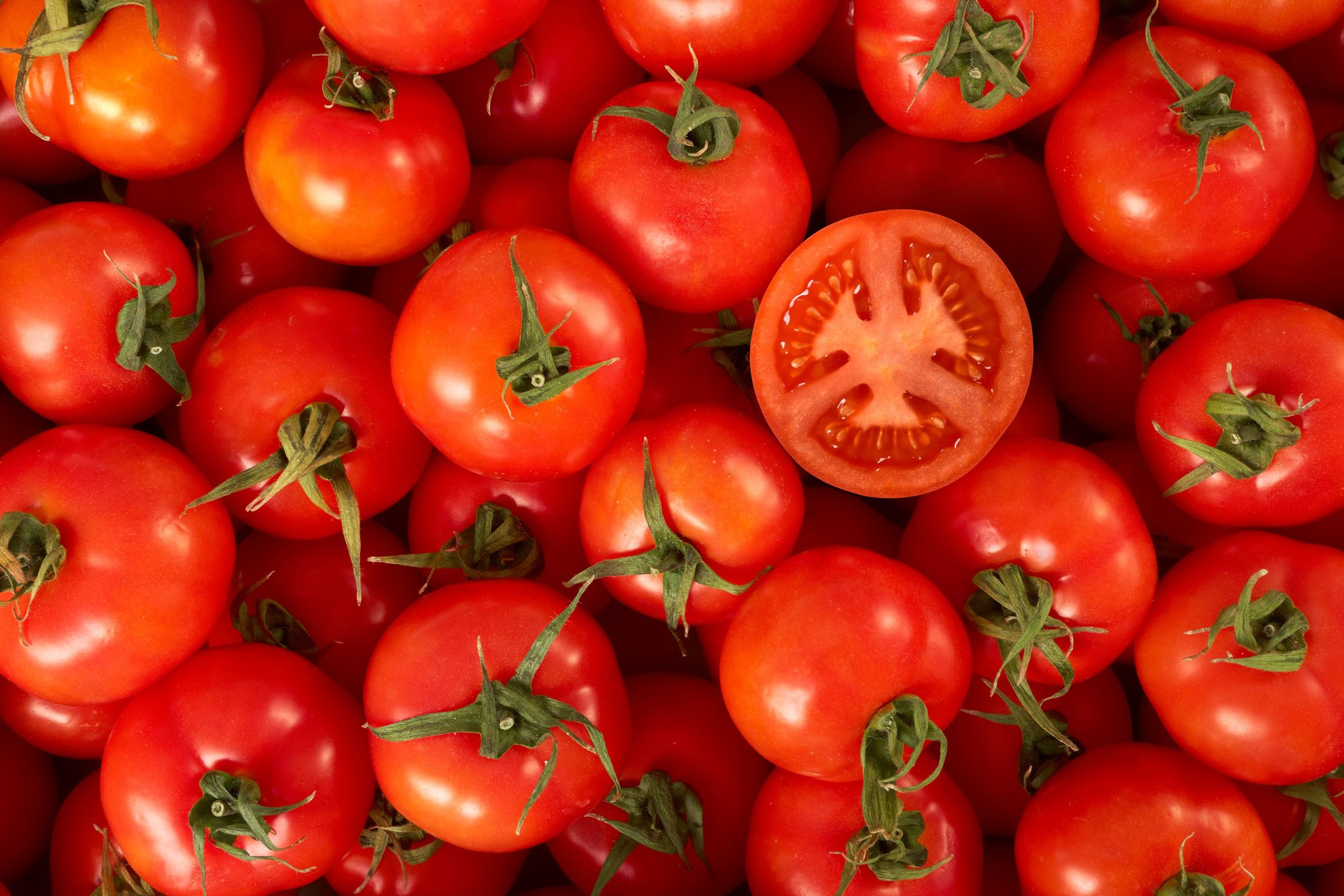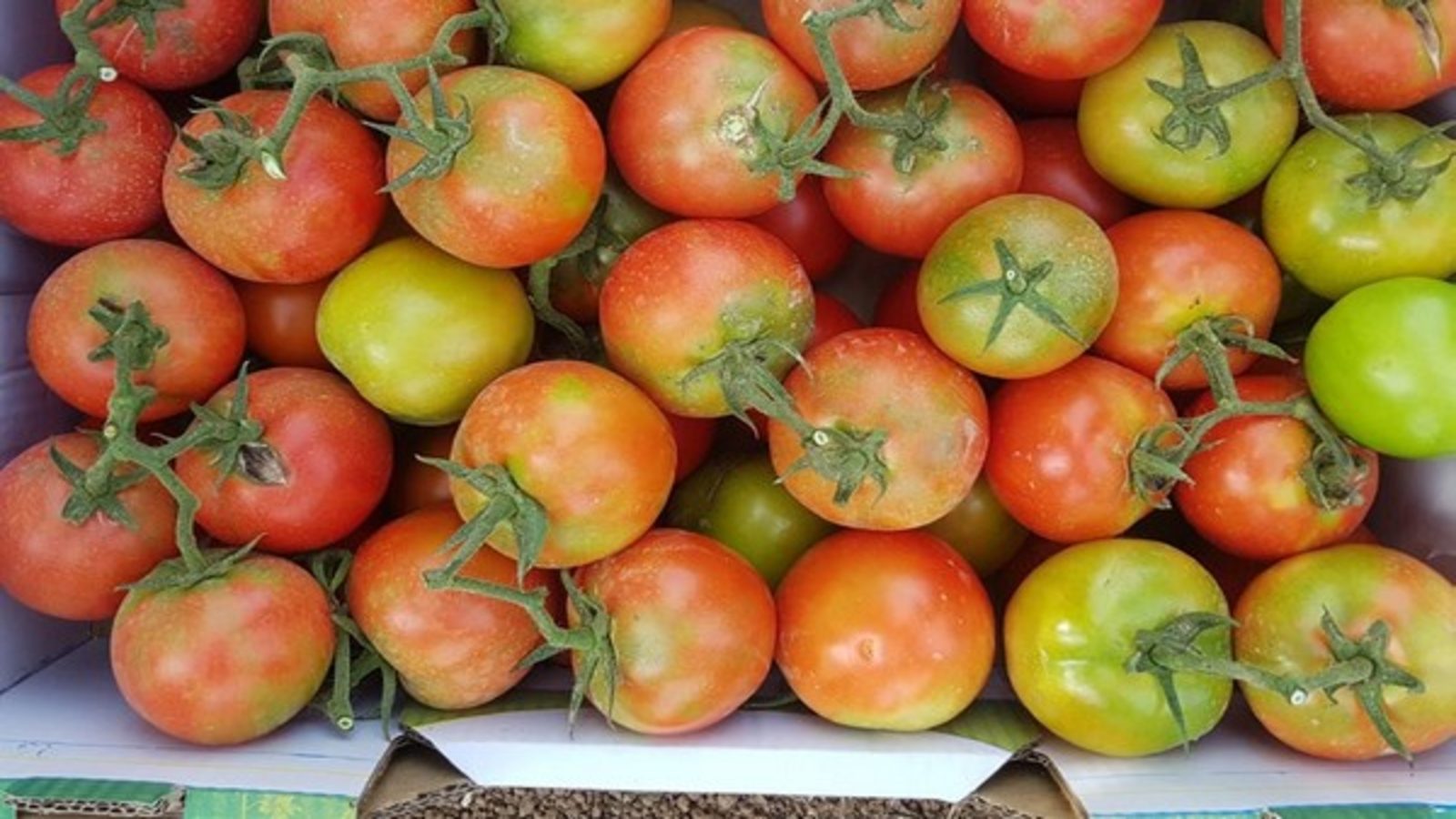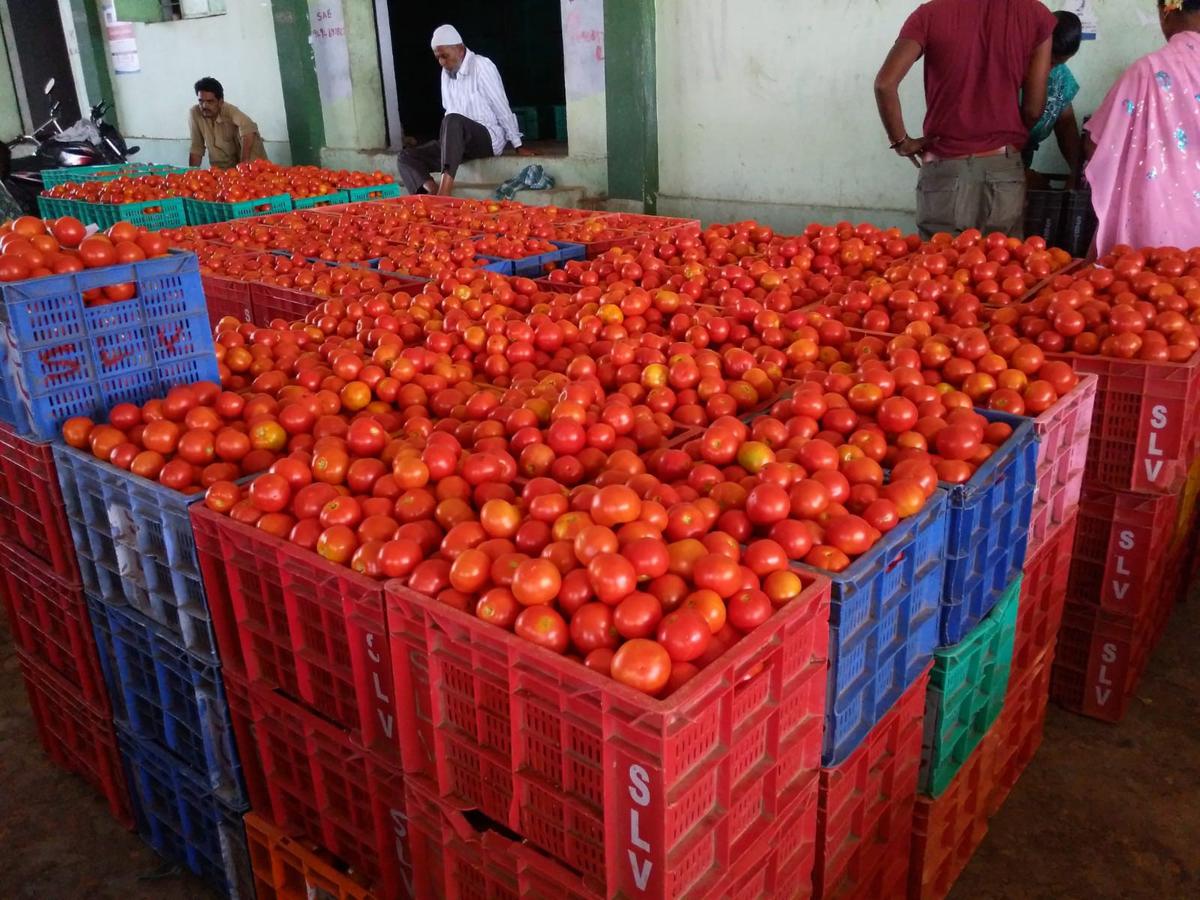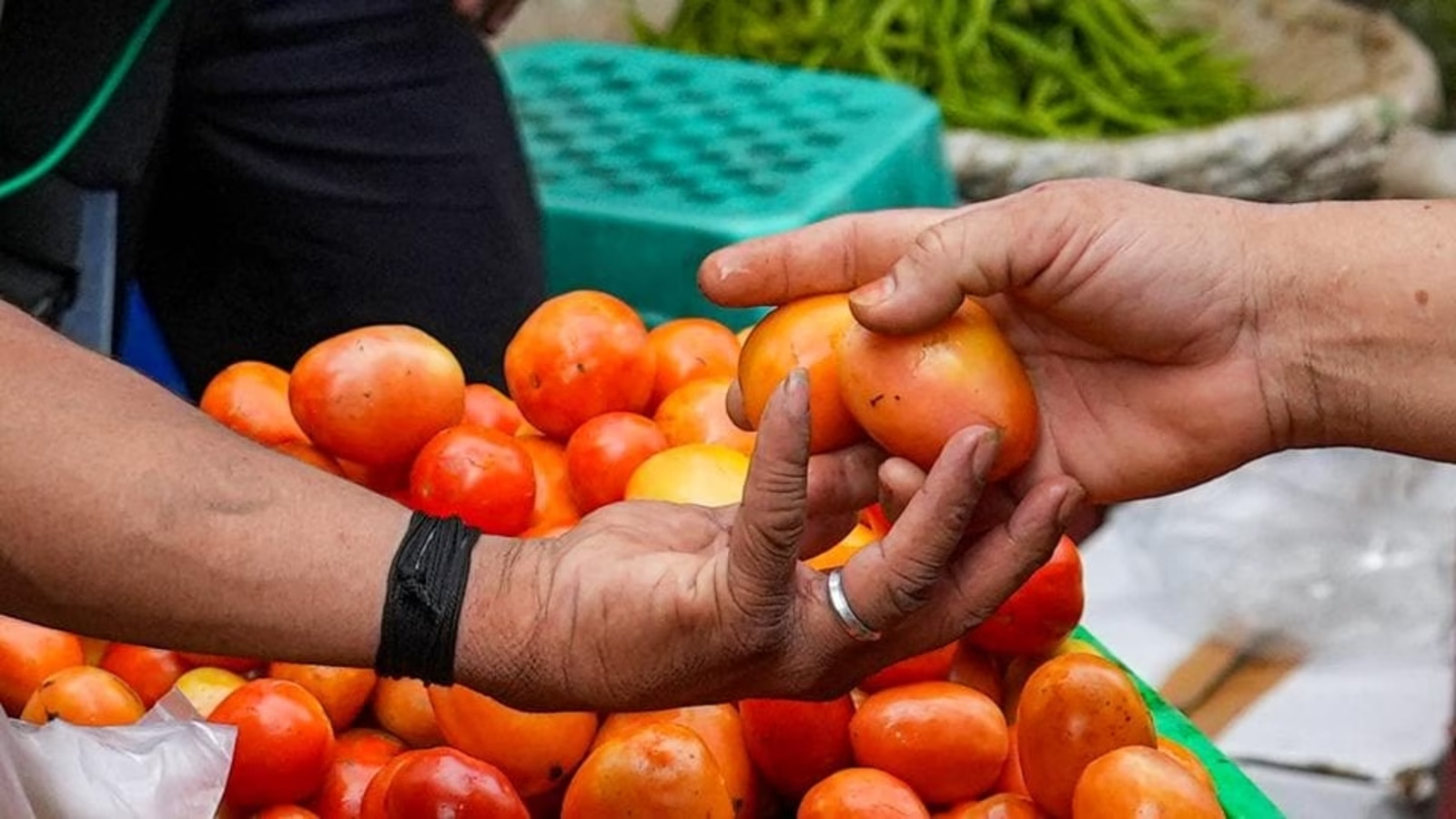
The United Indian

The price of tomatoes in India has experienced a drastic surge in recent weeks, with reports indicating that the cost of a kilogram of tomatoes has exceeded Rs. 160. Several factors have been attributed to this significant increase in prices, including a poor monsoon season, heavy rains, and unusually high temperatures. However, one of the primary culprits behind this price hike is the spread of the Tomato Mosaic Virus (TOMV).
Understanding Tomato Mosaic Virus (TOMV)
Tomato Mosaic Virus, commonly known as TOMV, is a highly contagious plant virus that poses a severe threat to tomato crops. This virus can rapidly spread through various means, such as contact with infected plants, seeds, or agricultural tools. Insects like aphids and whiteflies can also transmit the virus. Once TOMV infects a tomato crop, it can swiftly propagate throughout the entire field, resulting in extensive damage and substantial crop losses.
Tomato Mosaic Virus (ToMV) is a plant virus that specifically affects tomato plants. It is highly contagious and can cause significant damage to tomato crops if not managed properly. Here is some information about ToMV, including its symptoms, prevention methods, and potential solutions:
Symptoms of Tomato Mosaic Virus:
- Mosaic Patterns: Leaves may exhibit mosaic-like patterns, with irregular patches of light and dark green or yellow.
- Stunted Growth: Infected plants may experience stunted growth, appearing smaller and less vigorous than healthy plants.
- Leaf Deformation: Leaves can become curled, distorted, or wrinkled.
- Fruit Abnormalities: Infected fruits may exhibit color mottling, uneven ripening, or show malformations.
Prevention of Tomato Mosaic Virus:
- Virus-Free Seeds: Start with certified, virus-free seeds to minimize the risk of introducing the virus into your crops.
- Sanitation Practices: Maintain good sanitation practices, such as regular cleaning and disinfection of tools, equipment, and greenhouses to prevent virus transmission.
- Pest Management: Implement effective pest management strategies to control aphids and whiteflies, which can transmit ToMV.
- Weed Control: Remove weeds, as they can act as reservoirs for the virus and potentially infect your tomato plants.
- Resistant Varieties: Consider planting tomato varieties that have been bred for resistance to ToMV.
Solutions for Tomato Mosaic Virus:
- Isolation: If you notice any symptoms of ToMV in your plants, isolate them from healthy plants to prevent further spread.
- Removal of Infected Plants: Promptly remove and destroy infected plants to prevent the virus from spreading to other healthy plants.
- Crop Rotation: Practice crop rotation by avoiding planting tomatoes or other susceptible crops in the same area for consecutive seasons.
- Biological Controls: Explore the use of beneficial insects or biological agents that can help control aphids and whiteflies, reducing the risk of ToMV transmission.
It is important to note that there is no cure for Tomato Mosaic Virus once a plant is infected. Therefore, prevention measures are crucial to protect your tomato crops from this destructive virus. By following good agricultural practices, using disease-resistant varieties, and implementing appropriate sanitation and pest management strategies, you can significantly reduce the risk and impact of ToMV on your tomato plants.
Impact on Tomato-Producing States
The states of Maharashtra and Karnataka, renowned for their tomato cultivation, have been particularly affected by the spread of TOMV. Maharashtra has witnessed the destruction of over 50,000 hectares of tomato crops due to this virus, while Karnataka has seen its crops impacted across more than 30,000 hectares.
Decreased Supply and Increased Prices
The devastation caused by TOMV has severely disrupted the supply of tomatoes in the market. Consequently, there has been a sharp reduction in the availability of tomatoes, leading to a substantial increase in their prices. In certain regions of India, tomato prices have surged by over 300% in just a few weeks.
Ramifications on Consumers and Businesses
The soaring prices of tomatoes have had a significant impact on consumers throughout India. Many people are now finding it increasingly difficult to afford tomatoes, which are a staple ingredient in numerous Indian dishes. Furthermore, the escalating prices are adversely affecting businesses such as restaurants and fast-food chains that heavily rely on tomatoes as a key component of their menus.
Government Measures and Future Outlook
To combat the spread of TOMV and stabilize tomato prices, the Indian government has initiated various measures. These efforts aim to control the virus's dissemination and mitigate its impact on tomato cultivation. However, given the severity of the situation, it is likely that high tomato prices will persist for a considerable period.
How can the spread of viruses be effectively managed and controlled?
Controlling the spread of viruses, such as ToMV (Tomato Mosaic Virus), requires implementing certain essential measures. Experts emphasize the importance of adhering to biosafety standards in nurseries and implementing compulsory seed treatment. These actions are crucial in preventing the transmission of the virus.
Farmers who purchase trays of saplings should thoroughly inspect them before planting. Any visible signs of infection should be promptly identified and the infected material discarded. Throughout the cropping cycle, farmers should remain vigilant for any signs of infection and promptly remove any infected plants, ensuring they do not come into contact with healthy ones.
ToMV has the ability to remain dormant in weeds and plant remains present in and around the field. Therefore, it is necessary to clear the fields of weeds and plant material before undertaking fresh planting. Although plants cannot be cured of ToMV once infected, the spread of the infection can be controlled through the implementation of good agricultural practices.
By following these guidelines and taking proactive measures, farmers can effectively manage and control the spread of ToMV and other viruses that pose a threat to tomato crops.
Key Takeaways
The tomato mosaic virus (TOMV) has emerged as a major factor contributing to the unprecedented increase in tomato prices in India. Its highly contagious nature, coupled with its ability to rapidly destroy tomato crops, has led to a significant decline in tomato supply and subsequently driven up prices. As the government takes steps to address the issue, it remains to be seen how long it will take to stabilize the tomato market and alleviate the burden on consumers and businesses.
Read more in Recent Events
Jul 03, 2025
TUI Staff
Jul 03, 2025
TUI Staff
Jun 29, 2025
TUI Staff
Jun 27, 2025
TUI Staff

Stay Tuned with The United Indian!
Our news blog is dedicated to sharing valuable and pertinent content for Indian citizens. Our blog news covering a wide range of categories including technology, environment, government & economy ensures that you stay informed about the topics that matter most. Follow The United Indian to never miss out on the latest trending news in India.
©The United Indian 2024













